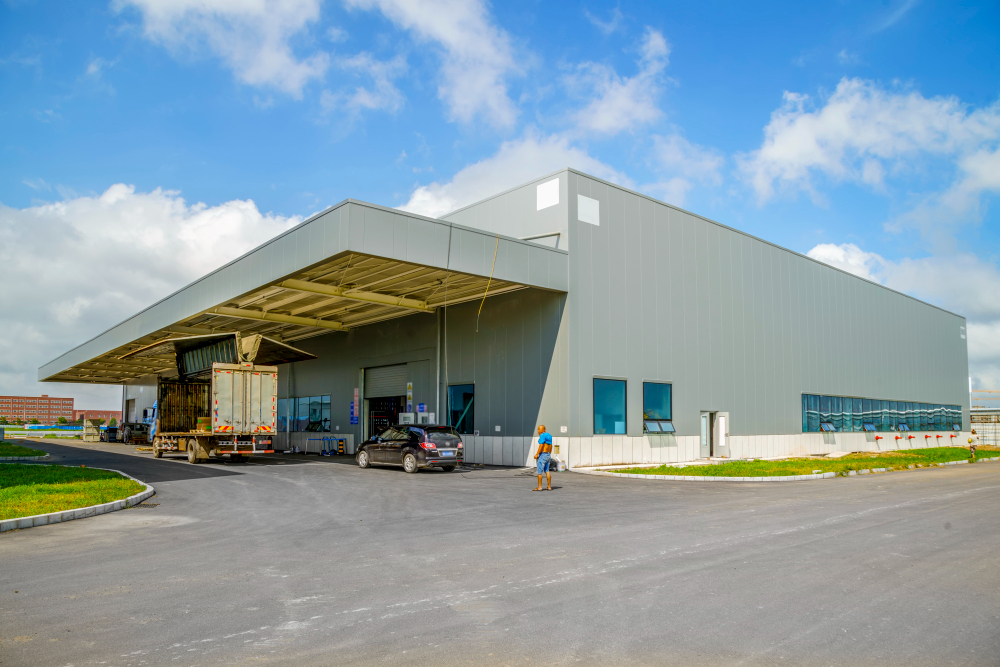Introduction

Dubai, renowned for its visionary approach to innovation and technology, is now witnessing a groundbreaking transformation in its industrial landscape with the emergence of smart warehouses. These cutting-edge facilities are redefining traditional warehouse operations by integrating advanced technologies such as the Internet of Things (IoT), artificial intelligence (AI), robotics, and automation. This article delves into the profound impact of smart warehouses on Dubai's industrial landscape, exploring the benefits, challenges, and implications of this technological revolution.
Intelligent Automation and Robotics:
Smart warehouses in Dubai are revolutionizing the concept of automation and robotics to enhance operational efficiency and productivity. Automated guided vehicles (AGVs) and robotic arms are seamlessly integrated into warehouse operations, streamlining tasks such as picking, packing, and inventory management. These intelligent systems optimize workflow, minimize human errors, and expedite order fulfillment processes, thereby enabling warehouses to handle higher volumes of goods with increased accuracy and speed.
IoT-Enabled Inventory Management:
The integration of IoT in Dubai's smart warehouses has paved the way for real-time monitoring and management of inventory. IoT sensors and devices are embedded throughout the warehouse infrastructure, enabling continuous tracking of goods, temperature control, and environmental conditions. This real-time data facilitates proactive decision-making, ensuring optimal inventory levels, reducing stockouts, and preventing wastage, ultimately leading to improved customer satisfaction and cost savings.
Data-Driven Decision-Making:
Smart warehouses leverage data analytics and AI algorithms to derive valuable insights from the vast amount of information generated within the warehouse ecosystem. These insights aid in predictive demand forecasting, inventory optimization, and efficient resource allocation. By analyzing historical data and current trends, warehouse managers can make informed decisions that minimize operational risks, enhance supply chain visibility, and streamline logistics processes, thereby fostering a competitive edge in Dubai's rapidly evolving industrial landscape.
Enhanced Security and Safety Measures:
The implementation of smart technologies has significantly bolstered security and safety protocols within Dubai's warehouses. Advanced surveillance systems, biometric access controls, and AI-powered security algorithms ensure comprehensive protection against theft, unauthorized access, and safety hazards. With heightened security measures, smart warehouses can safeguard valuable assets, mitigate potential risks, and uphold regulatory compliance standards, instilling trust and confidence among stakeholders and customers alike.
Optimized Energy Efficiency:
Smart warehouses in Dubai prioritize energy-efficient practices and sustainable operations to reduce their environmental footprint. Integration of smart lighting systems, energy-efficient HVAC (heating, ventilation, and air conditioning) systems, and renewable energy sources contribute to substantial energy savings and cost reductions. By adopting eco-friendly initiatives, smart warehouses not only contribute to environmental preservation but also adhere to Dubai's sustainable development goals, positioning the region as a global leader in green industrial practices.
Seamless Connectivity and Integration:
The interconnected nature of smart warehouses fosters seamless connectivity and integration across various stages of the supply chain. Cloud-based platforms and interconnected systems enable real-time communication and data sharing among different stakeholders, including suppliers, distributors, and logistics partners. This interconnected ecosystem promotes streamlined coordination, timely response to market demands, and improved customer service, enhancing Dubai's reputation as a pivotal logistics and trading hub in the global marketplace.
Challenges and Considerations:
Despite the transformative benefits of smart warehouses, their integration poses certain challenges. Initial investment costs, technological complexities, and the need for upskilling the workforce to operate and maintain advanced systems are among the primary challenges that warehouse operators in Dubai must address. Additionally, ensuring data security and privacy in a digitally connected environment remains a critical concern that necessitates robust cybersecurity measures and regulatory compliance frameworks.
Conclusion:
In conclusion, the emergence of smart Warehouse Construction Company in Dubai's industrial landscape signifies a paradigm shift towards a technologically advanced and interconnected supply chain ecosystem. By harnessing the power of automation, data analytics, and IoT, these smart warehouses are setting new benchmarks for operational efficiency, sustainability, and customer-centric services. As Dubai continues to spearhead innovation and digital transformation, the integration of smart warehouses not only enhances the region's global competitiveness but also paves the way for a more resilient, efficient, and sustainable industrial future.

No comments yet